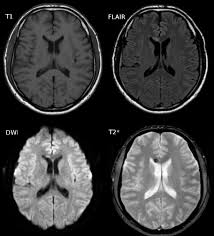
High levels of a specific protein in the blood after a sports concussion may predict how severe post-concussion symptoms will be. A test that measures this chemical in the blood might aid neurologists in determining which patients can return to their sports and which may have a more serious brain injury.
The chemical is called all-spectrin N-terminal fragment, or SNTF for short. Previous research had found that higher levels of SNTF in the blood the day a concussion occurred could show which patients went on to develop lasting cognitive problems. SNTF is present at undetectable levels in healthy human brains, but it is produced when nerve cells are traumatized and begin to die. If it can serve as a marker for the severity of a concussion, including those related to sports, it can help screen which patients will need added time off or additional treatments.
A new study involved 288 players in a professional ice hockey league in Sweden. Twenty-eight of these players suffered a concussion during the first half of the 2012-2013 season. Blood was drawn from them regularly for testing and they were evaluated daily for post-concussion symptoms. Eight players had no symptoms within a few days of their concussion, but 20 had persistent symptoms.
Researchers at the University of Pennsylvania and the University of Gothenburg in Sweden discovered an increase in the blood SNTF concentration from 1 hour up to 144 hours after the concussions in those players who had persistent post-concussion symptoms. Those players who did not have a concussion or whose concussion symptoms went away rapidly did not have an increase in SNTF, they found.
A concussion is a traumatic brain injury usually caused by a blow to the head. It can be mild or severe. Post-concussion symptoms can include headaches, dizziness, sleep disturbances, irritability or anxiety, and problems with memory, concentration, and thinking. These symptoms may occur whether or not the patient lost consciousness when he or she was injured and do not appear to be associated with the severity of the concussion.



